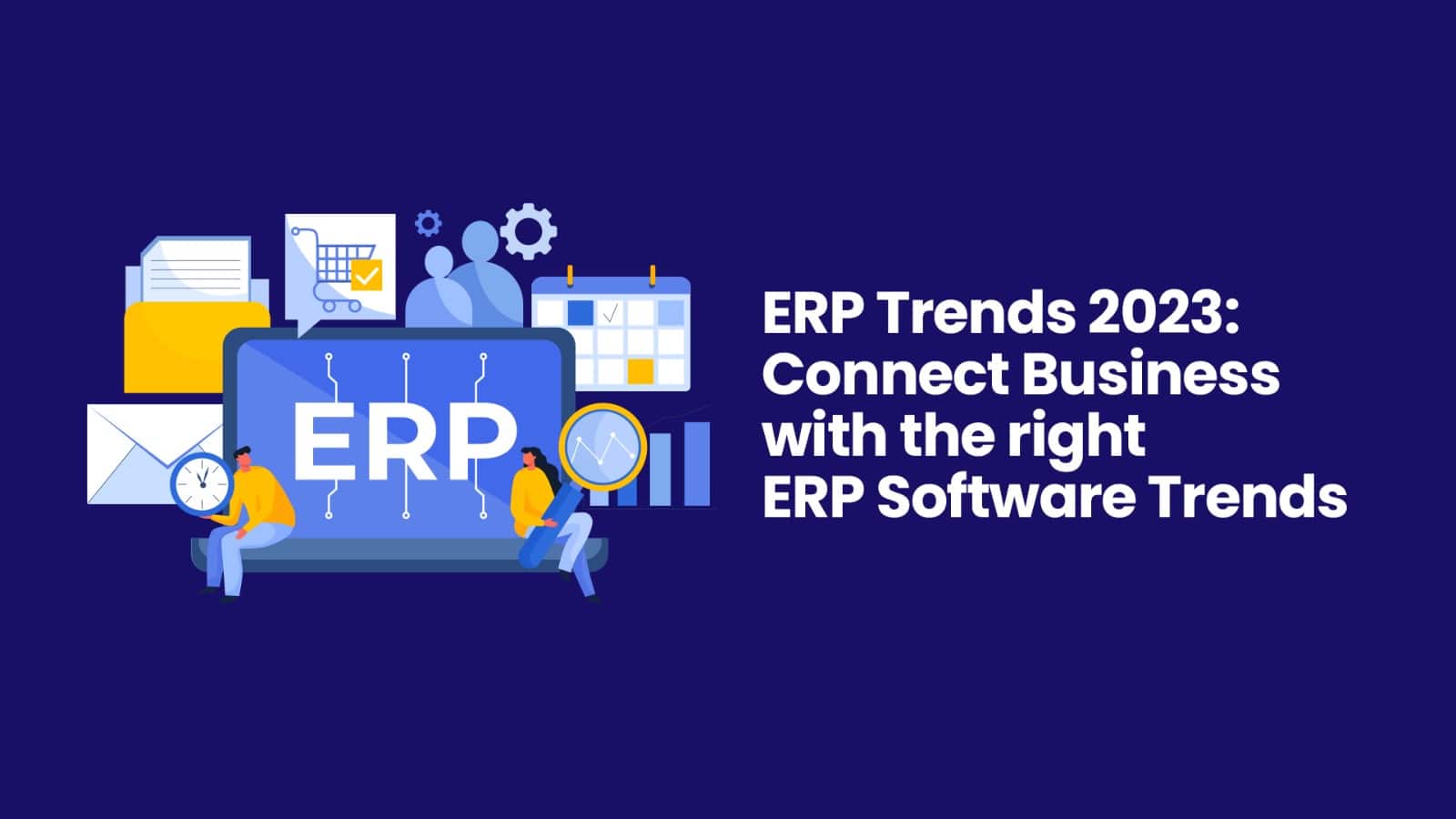



Today IT teams work on the cloud a lot and since remote work is a norm now, such ERP trends have to be considered in the working system. ERP cloud is just one of the innovations that man has switched to with ease. There are so many features that have been spotlighted as the top ERP trends to be adopted this year. Let’s see what they are in detail.
The ERP industry is always changing to meet the current and future needs of the market. Advanced tools and technologies are becoming more popular, which is making ERP platforms smarter. For many businesses, the way forward is through the use of new technologies and digital transformation. That is not it, but you get the opportunity to use data effectively. Our IT experts in Dubai embed Data analytics into ERP based websites and mobile apps to help clients get guidance and insight from them.
This means that businesses may have to make more changes and spend more money, but it also gives them a chance to put money into the future to make business operations and reporting easier and based on more accurate data.
When it comes to ERP solutions, the clear competitive advantage of an organization is found in its operational differences. Organizations of today have their own unique tastes and nuances. A customizable ERP is a system built with a lot of flexibility so that you can add modules that fit your business processes perfectly.
Traditional ERP solutions often require a business to make major changes to how it does business. But customizable ERP solutions can be changed to make sure that the workflow or business process of an organization stays the same. Workflows, news stories, and processes have better scope for change. It can reduce the time it takes to learn, make it easy to use, have little effect on business flow, and increase productivity by a huge amount.
Integration using standard APIs has become the norm as the use of cloud ERP grows.
For technological independence, you need an ERP that provides you with the ability to integrate with third-party apps. Customizable ERP solutions give companies access to APIs and the ability to integrate niche third-party solutions. This makes it easy for companies to add or remove features from their ERP solutions and gives them more control over both development and implementation.
Leading ERP companies are taking advantage of this trend by combining their products with these slashing technologies, and so are IT executives. Because of web services and JSON, it is now easy to combine ERP software with other satellite applications. James Angel, who helped start DYL is an example to take note of.
Even though cloud computing is not the newest trend, it is still one of the most innovative. Cloud computing opened up a new world of ERP by allowing cloud-hosted options that make work more efficient, save time, lower the overall cost of ownership, and help businesses change how they work.
They have a large share of the market because they are open, flexible, and scalable. Many organizations that still use on-premise ERP are beginning to recognize how and why they are falling behind. Because of the pandemic, operational problems like inflexibility, expensive scaling, lack of innovation, and only partial collaboration are noticeable now. These problems forced many businesses to work remotely, making on-premise solutions obsolete.
More people work on the go in the world we live in now. That’s why it’s not surprising that one of the biggest ERP trends for 2023 is a greater attention on mobile and cloud-based methods.
With the rise of remote work, more and more companies are adopting mobile ERP, which is quickly becoming a necessary tool for running a business. Mobile ERP solutions make systems more visible and accessible across the whole company, speed up business processes, increase productivity, and save time, money, and resources. Mobile ERP apps run operations “on the go.” These apps include mobile CRM, warehouse, proof of delivery, point-of-sale (POS), employee attendance, purchase approval, and more.
In the business world, where people want things right away, process automation tips the scales. This acts in favor of those who use it to “do more with less.” In 2023 and beyond, the growing trend of AI will affect all ERP features. Simultaneously industry-specific solutions like those for manufacturing and distribution can feel the impact. AI technologies, such as machine learning, are helping businesses get more value out of the ever-growing amounts of data they collect. AI keeps giving businesses the ability to find new, actionable insights, and improve their operational processes. It makes the best use of their mountains of business data.
The industry competition to improve productivity in terms of business operations is the primary force behind the creation of ERP. The primary characteristics of ERP solutions and the techniques will undergo a considerable transformation in 2023. In order to maintain its position as the industry standard, ERP will develop both new technological capabilities and operational workflows. For companies who need a totally native ERP solution, feel free to get in touch with us.